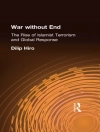From its creation in 1950, to the fall of the Berlin Wall in 1989, the German Democratic Republic’s Ministry for State Security closely monitored its nation’s citizens. Known as the Staatssicherheit or Stasi, this organization was regarded as one of the most repressive intelligence agencies in the world. Florian Henckel von Donnersmarck’s 2006 film The Lives of Others (Das Leben der Anderen) has received international acclaim—including an Academy Award, an Independent Spirit Award, and multiple German Film Awards—for its moving portrayal of East German life under the pervasive surveillance of the Stasi.
In Totalitarianism on Screen, political theorists Carl Eric Scott and F. Flagg Taylor IV assemble top scholars to analyze the film from philosophical and political perspectives. Their essays confront the nature and legacy of East Germany’s totalitarian government and outline the reasons why such regimes endure.
Other than magazine and newspaper reviews, little has been written about The Lives of Others. This volume brings German scholarship on the topic to an English-speaking audience for the first time and explores the issue of government surveillance at a time when the subject is often front-page news. Featuring contributions from German president Joachim Gauck, prominent singer-songwriter Wolf Biermann, journalists Paul Hockenos and Lauren Weiner, and noted scholars Paul Cantor and James Pontuso, Totalitarianism on Screen contributes to the growing scholarship on totalitarianism and will interest historians, political theorists, philosophers, and fans of the film.
Tabella dei contenuti
Introduction
Post-Totalitarianism in The Lives of Others
What is a Dissident? The Travails of Intellectuals in The Lives of Others
Communist Moral Corruption and the Redemptive Power of Art
Long Day’s Journey Into Brecht: The Ambivalent Politics of The Lives of Others
The Tragic Ambiguity, or Ambiguous Tragedy, of CMS
The Lives of Others, Good Bye Lenin! and the Power of Everydayness
On the Impossibility of Withdrawal: Life in the Grey Zone
Fiction or Lived History? On the Question of the Credibility of The Lives of Others
The Ghosts Are Leaving the Shadows
Against Forgetting: A Conversation with Joachim Gauck
East German Totalitarianism as a Warning from History
The Stasi: An Overview
Circa l’autore
F. Flagg Taylor IV is associate professor of government at Skidmore College. He is the editor of The Great Lie: Classic and Recent Appraisals of Ideology and Totalitarianism.












